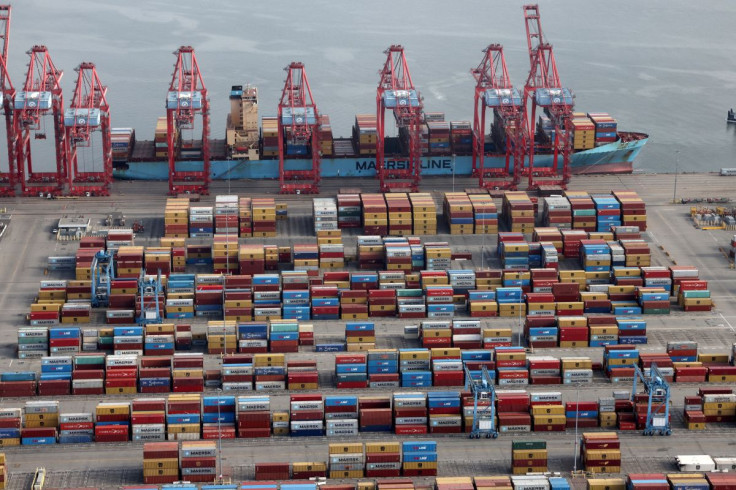Why A Recession May Have A Silver Lining For Supply Chains
From Elon Musk proclaiming that recessions can be "a good thing" to a CNN op-ed warning Americans that it is time to prepare for a recession, the idea that we are due for an economic downturn seems to be gaining traction. Certainly, nobody likes the idea of a recession, and while it may not be what Musk was specifically referring to, he may be partially right in at least one respect: A general decline in business would be potentially beneficial to supply chains, allowing networks to catch a much-needed breath.
Supply Chain is a Simple Premise: Balance Supply and Demand
The premise of supply chain management is a pretty simple one: Match your supply to customer demand. But finding this balance is anything but simple — and these two forces have moved in opposite directions over the past two years. Companies often err on the side of having more inventory than is necessary to meet customer demand, but it has proven difficult to access those supplies in light of disruptions that abound in our supply chains.
As a result, supply chains have found themselves in the white-hot spotlight. Earning that kind of scrutiny usually does not bode well for those on the receiving end of the inquiry. Yet, people are starting to appreciate that the imbalanced circumstances in which we find ourselves are many decades in the making, with supply chains routinely stretching around the world. Our supply chains were not built overnight even though their flaws have only come to light in the last few years.
Interestingly, recent earnings calls suggest that many retailers are in an oversupply situation, weighing down profits. The see-saw might be starting to teeter the other way.
The Supply Chain Woes Never Stopped
Mainstream media coverage of supply chain disruptions peaked in late 2021 and then largely faded from view — save for the baby formula shortage. But, as those in the supply chain and consumer goods sectors know all too well, the disruptions never really ended. Each new variant of the COVID-19 virus and the Russian invasion of Ukraine have taken us off our footing. These stresses, paired with surging demand, created shortages and upward pressure on prices. So, there is a connection between supply chain disruptions and the inflation we have been seeing since higher costs affect not just consumers but companies as well. Higher expenses for materials, labor, fuel and everything else mean that elevated costs get passed on to consumers. Higher costs and inflationary forces, in turn, can often cause consumers to buy in bulk as a way to save money or as a hedge against limited product availability, thus keeping demand levels and, subsequently, prices high. It's the proverbial vicious cycle.
Disparities Among Supply Chains
Not all industries and supply chains have been struggling at the same level. Demand for services, for instance, fell sharply as a result of the pandemic and then recovered slowly and took about 1.5 years to return to pre-pandemic levels. The demand for goods, on the other hand, increased dramatically right away (aside from an early dip that lasted for just about a month). Goods are far more "supply chain intensive" than services, and while the demand for non-durable goods has been higher than durable goods, both have stressed supply chains, with non-durables putting more stress on domestic supply chains and durables putting more stress on global supply chains. Granted, some of this growth can be attributed to inflation, but on the whole, it is due to demand pull rather than cost push. In other words, overall unit volume is high, not just sales dollars. Consumers and businesses continue to spend vigorously despite higher prices.
Tempering the Chaos
Again, nobody wants a recession, but if there is going to be one anyway, it would finally afford supply chains a much-needed opportunity to catch up, so to speak. Part of the problem has been unceasingly high demand levels that have forced supply chains to stay in a perpetual state of overdrive, increasing the stress on the system. Our supply chains were not designed to withstand such duress. Further, consumers conditioned to "everyday low prices" would not want to foot the bill for the redundancies that would be required to prevent resounding supply issues from manifesting.
Recessions typically mean temporary reductions in demand, which is good in the sense that it would allow companies to build some measure of "breathing room" in supplies, inventories, transportation operations and, in some cases, their own production and distribution sites. Many companies would welcome this opportunity, so long as it is a temporary hiatus before growth resumes again. And so while it may still be hard to accept Musk's characterization of a recession as a "good thing," the fact that there would be a silver lining to it with respect to supply chains does make the bitter pill a little bit easier to swallow in the sense that in-stock levels would improve and prices might start to recede again.
(Thomas Goldsby is the Haslam Chair of Logistics at the University of Tennessee's Master's of Science in Supply Chain Management online program.)

© Copyright IBTimes 2024. All rights reserved.











